Sports Medicine and Rehabilitation
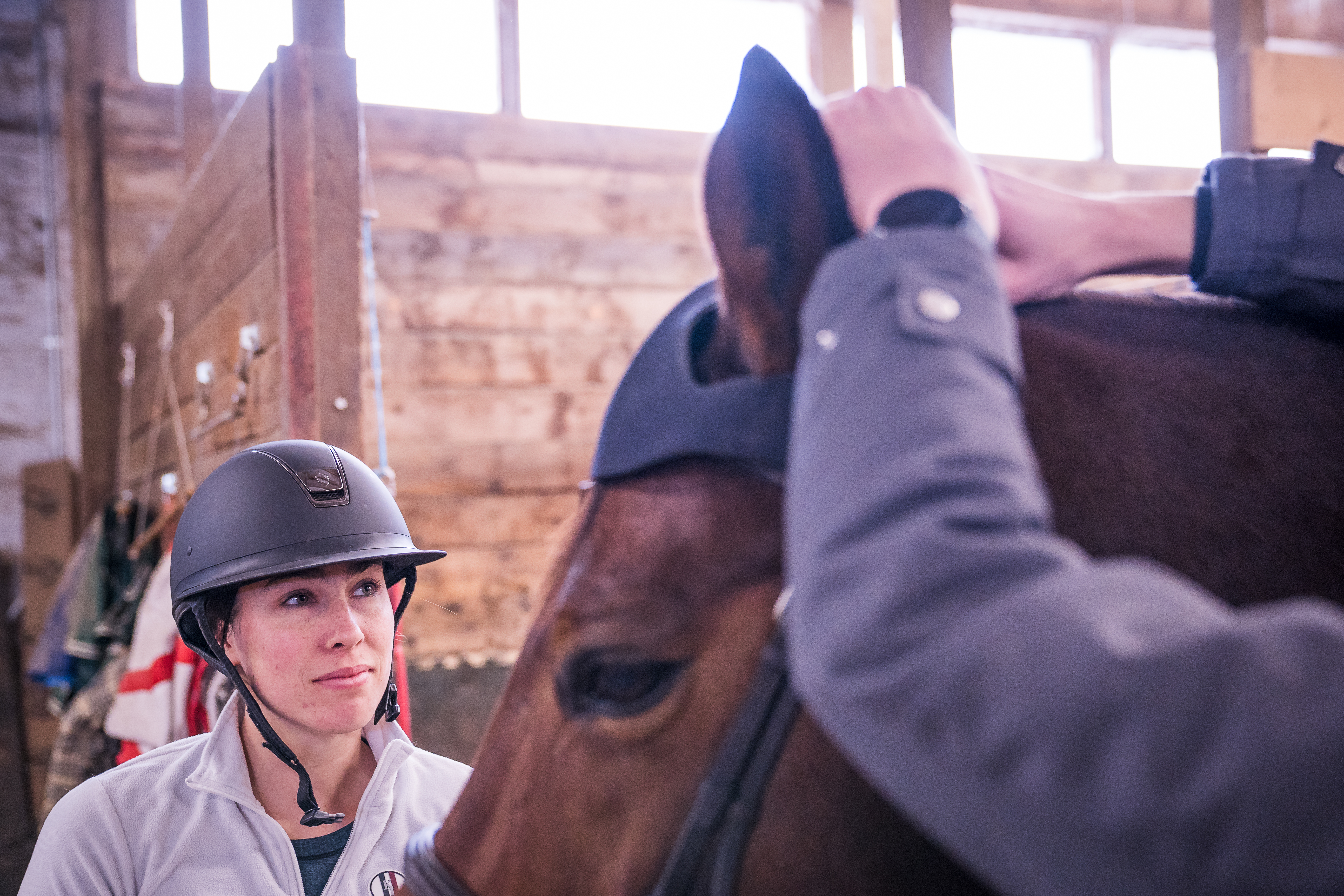 Equine Sports Medicine and Rehabilitation service provides an interdisciplinary approach to diagnosing and treating the underperforming equine athlete. Whether you have a race horse, hunter, show jumper or other discipline, our team of specialists with expertise in musculoskeletal, respiratory, cardiovascular, neurologic and hematological disorders can determine why your horse may be underperforming.
Equine Sports Medicine and Rehabilitation service provides an interdisciplinary approach to diagnosing and treating the underperforming equine athlete. Whether you have a race horse, hunter, show jumper or other discipline, our team of specialists with expertise in musculoskeletal, respiratory, cardiovascular, neurologic and hematological disorders can determine why your horse may be underperforming.
Horses from throughout the northeastern United States are referred to us for evaluation and diagnosis of performance limiting disorders.



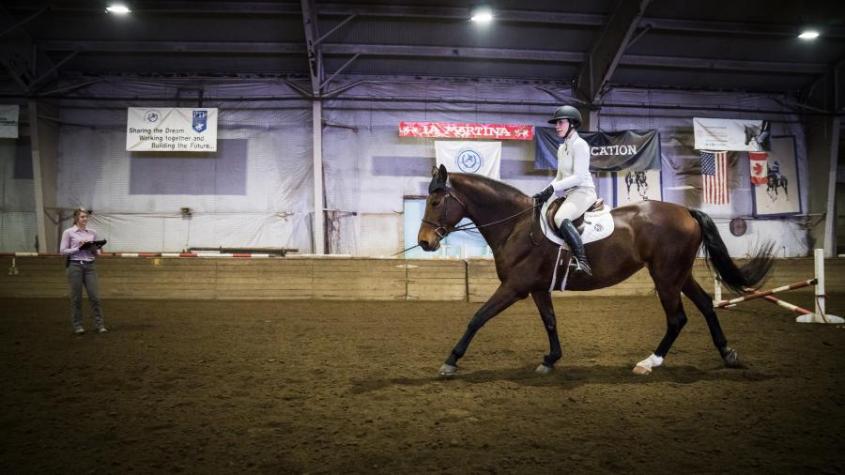
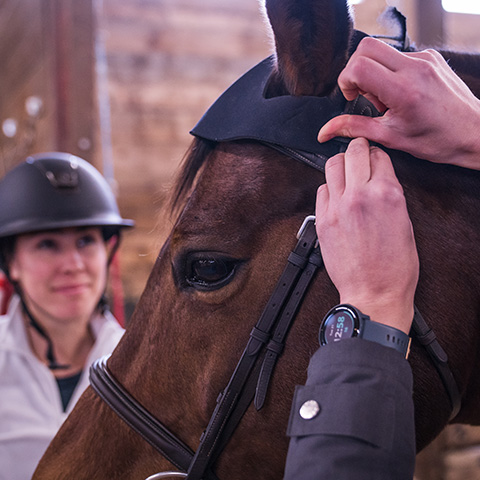
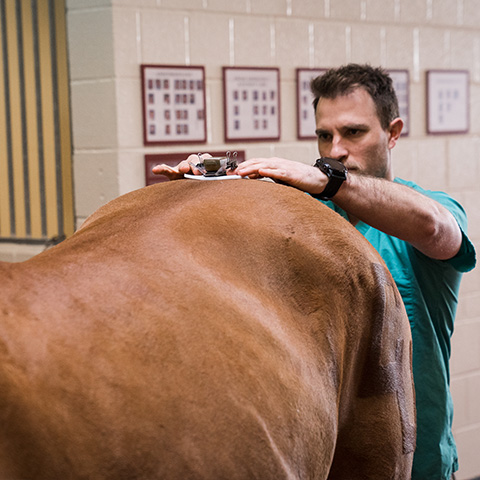
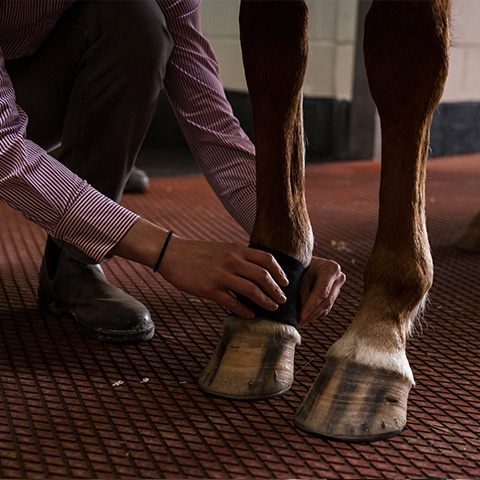
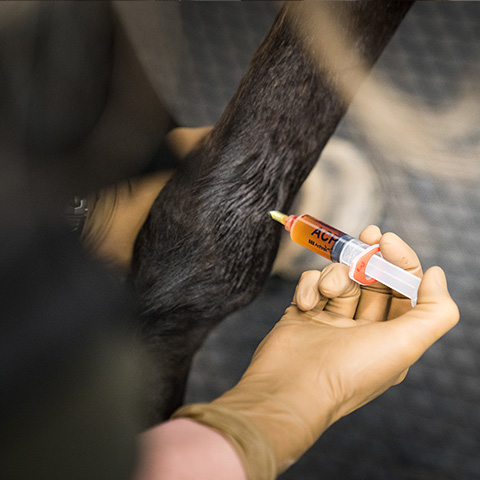
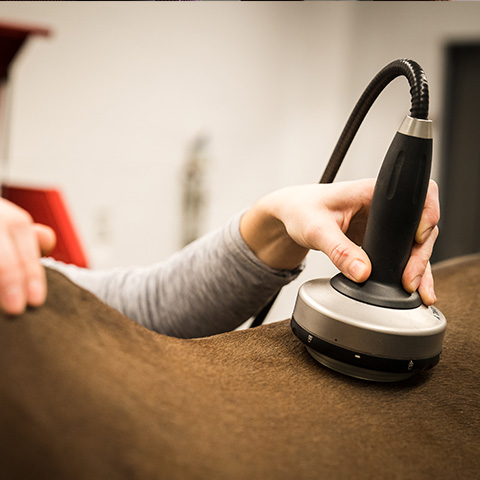
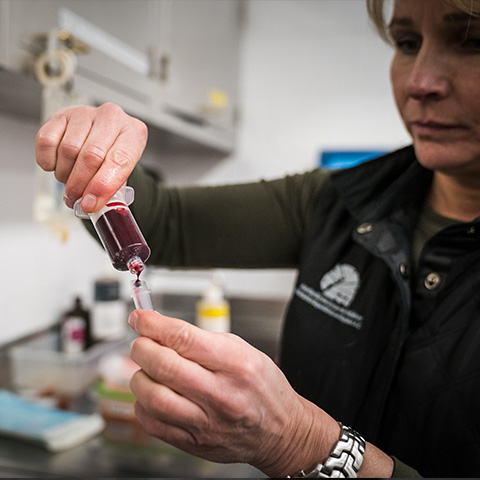
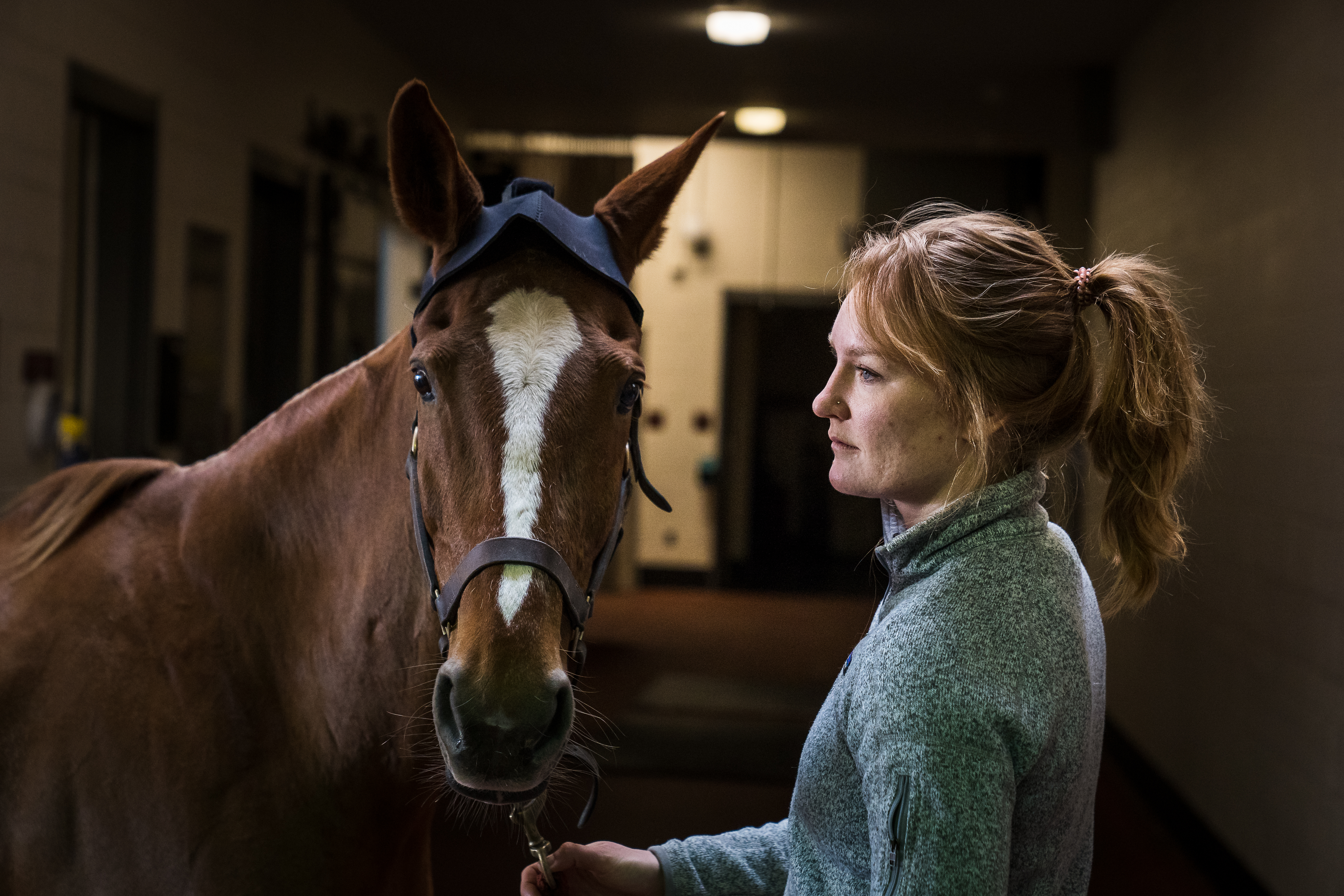 Your scheduled visit to the Equine Sports Medicine Service begins when you pull up to the circular driveway in front of the equine hospital. Please park your vehicle in the driveway, come into the reception area and check in at the front desk. After a small amount of paperwork, our licensed veterinary technician will help you unload and walk your horse to its assigned stall.
Your scheduled visit to the Equine Sports Medicine Service begins when you pull up to the circular driveway in front of the equine hospital. Please park your vehicle in the driveway, come into the reception area and check in at the front desk. After a small amount of paperwork, our licensed veterinary technician will help you unload and walk your horse to its assigned stall.